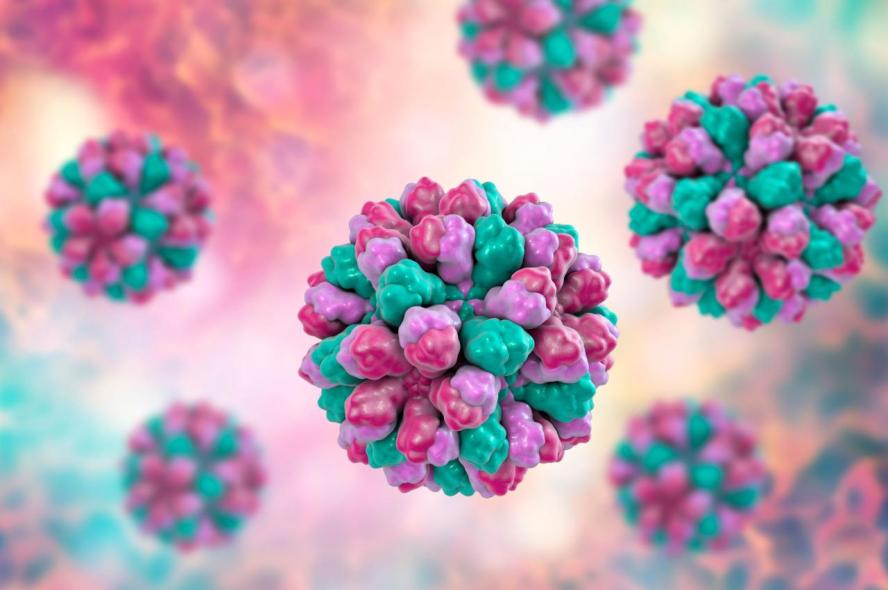-
About
- Departments & Offices
-
Academics
- Public Health
- Biomedical Sciences
- Physician Assistant
- Special Master’s (MBS)
-
Admissions & Financial Aid
- Tuition & Fees
-
Student Experience
-
- Student Resources by Program
- Academic & Student Support
- Wellness & Wellbeing
- Student Life
- Events & Traditions
-
-
Research
- Research Labs & Centers
- Tufts University-Tufts Medicine Research Enterprise
-
Local & Global Engagement
- Pathway & Enrichment Programs
- Global Health Programs
- Community Engagement
What to Know About Norovirus
A physician and clinical faculty member in family medicine at Tufts University School of Medicine offers advice on how to treat norovirus at home and when to see a doctor

Cases of norovirus—a common viral stomach illness—tend to occur in the U.S. between November and April. According to the Centers for Disease Control and Prevention, there have been at least 13 cruise ship outbreaks so far in 2023. But norovirus causes about 20 million cases each year in the U.S. with more than 100,000 hospitalizations, and it can spread almost anywhere, so it’s important to know how to spot it and deal with an infection.
Joshua St. Louis, M14, is an assistant professor of family medicine at the Tufts University School of Medicine-affiliated Lawrence Family Medicine Residency, a physician at Lawrence General Hospital, and an HIV specialist who spends much of his time caring for people with chronic infections. St. Louis recently shared his tips for how to prevent a norovirus infection, what to do if you’re sick, and how to recover from the illness.
Isolate and clean to stop the spread.
Norovirus spreads when droplets from an infected person’s vomit and feces are ingested by someone else. It can’t spread through inhalation of particles, or through coughing or sneezing, says St. Louis. The best way to prevent the spread of norovirus once you’re sick is to isolate yourself from others, and, especially, to use a different bathroom. “Norovirus is extremely contagious,” he says. “It's very easily transmitted to others. And unfortunately, when someone's having profuse vomiting and diarrhea, it's pretty hard to not be exposed to norovirus particles.”
According to St. Louis, washing your hands frequently with soap and water is another important way to prevent the virus from spreading. That’s partly because norovirus can’t be killed by alcohol—the typical disinfectant used in hand sanitizers and disinfectant wipes. So, if you have to share space with an infected person, make sure to disinfect commonly touched surfaces with a solution of bleach and water to kill the virus. If you have a child, especially under the age of 12 months, ensure that anyone coming into contact with the child washes their hands first, too.
Expect a sudden onset of symptoms.
Norovirus symptoms appear very soon after infection, says St. Louis. “People feel well one moment, and then the next moment, they feel extremely unwell,” he says. You’ll know you probably have norovirus if your main symptoms are almost uncontrollable diarrhea and vomiting—virtually all infected people experience diarrhea, and about half have vomiting as well.
Rarer norovirus symptoms may include a fever, chills, or muscle aches. In most healthy people, these symptoms leave almost as quickly as they arrived, and usually last for only about 12-36 hours. Since symptoms arrive quickly, norovirus rarely spreads from asymptomatic people, so it’s unlikely you’ll get it from a seemingly healthy roommate or family member.
Watch for dehydration.
Dehydration is the most dangerous effect of norovirus, so replacing lost fluids is key. If you’re at home, make sure to stay hydrated by trying to sip water every 15 minutes. Have electrolyte powders or electrolyte drinks, such as Pedialyte or Gatorade, on hand. Symptoms of dehydration among people of all ages include dry mouth and lips, a decreased frequency of urination, fatigue, or dizziness. Cracked lips or skin that looks tight or pale are signs that dehydration may be severe.
While hospitalization is unlikely, it may be necessary if an infected person gets too dehydrated. Severe dehydration can lead to kidney failure or life-threatening low blood pressure. If you go to the hospital, doctors will likely replenish your fluids and electrolytes intravenously and administer Tylenol to control fevers. Antibiotics don’t affect norovirus, and there aren’t currently any effective antiviral medications, says St. Louis.
Help your body recover after illness.
Even after the worst of the infection passes, you may still feel dehydrated or have persistent stomach issues from a lack of beneficial bacteria in your gut.
“Norovirus sort of decimates your microbiome,” says St. Louis. “It will take weeks to months to rebuild a healthy gut, so people may continue to have lingering symptoms like occasional diarrhea, cramping, nausea, and constipation until they're able to get their microbiome back in order.” St. Louis recommends helping your digestive tract recover by eating a balanced diet, as well as fermented foods such as yogurt, kombucha, or pickled vegetables.
Pay special attention to those with weaker immune systems.
Children under 12 months old or people with weakened immune systems are at a higher risk of more severe norovirus symptoms and may be more likely to develop chronic norovirus, when symptoms of norovirus last for weeks or even months.
St. Louis recommends that any child under 12 months or any immunocompromised person should receive professional medical care if they’re experiencing norovirus symptoms, especially profuse vomiting, diarrhea, excessive sleepiness, or refusal to eat and drink.
“I would encourage parents of kids under one year old to seek out medical attention urgently if their child is behaving in a way that seems out of the norm for them,” says St. Louis.